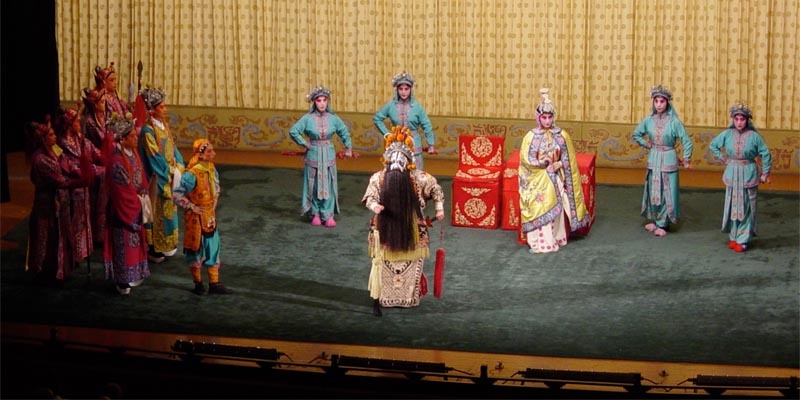The Hegemon-King Bids His Lady Farewell on:
[Wikipedia]
[Google]
[Amazon]
 ''The Hegemon-King Bids His Lady Farewell''William Dolby, ''Eight Chinese Plays from the Thirteenth Century to the Present'' (London: P. Elek; New York: Columbia University Press, 1978). (), also known as ''Farewell My Concubine'', is a traditional
''The Hegemon-King Bids His Lady Farewell''William Dolby, ''Eight Chinese Plays from the Thirteenth Century to the Present'' (London: P. Elek; New York: Columbia University Press, 1978). (), also known as ''Farewell My Concubine'', is a traditional
 ''The Hegemon-King Bids His Lady Farewell''William Dolby, ''Eight Chinese Plays from the Thirteenth Century to the Present'' (London: P. Elek; New York: Columbia University Press, 1978). (), also known as ''Farewell My Concubine'', is a traditional
''The Hegemon-King Bids His Lady Farewell''William Dolby, ''Eight Chinese Plays from the Thirteenth Century to the Present'' (London: P. Elek; New York: Columbia University Press, 1978). (), also known as ''Farewell My Concubine'', is a traditional Chinese opera
Traditional Chinese opera (), or ''Xiqu'', is a form of musical theatre in China with roots going back to the early periods in China. It is an amalgamation of various art forms that existed in ancient China, and evolved gradually over more tha ...
. It was initially performed by Yang Xiaolou
Yang may refer to:
* Yang, in yin and yang, one half of the two symbolic polarities in Chinese philosophy
* Korean yang, former unit of currency of Korea from 1892 to 1902
* YANG, a data modeling language for the NETCONF network configuration pr ...
and Shang Xiaoyun
Shang Xiaoyun () (1900 – April 19, 1976) was one of the four great twentieth century performers of the Dan role type in Peking opera with Mei Lanfang, Cheng Yanqiu, and Xun Huisheng
__NOTOC__
Xun Huisheng (5 January 1900 - 26 Decembe ...
in 1918 in Beijing
}
Beijing ( ; ; ), alternatively romanized as Peking ( ), is the capital of the People's Republic of China. It is the center of power and development of the country. Beijing is the world's most populous national capital city, with over 21 ...
. Though usually associated with Peking opera
Peking opera, or Beijing opera (), is the most dominant form of Chinese opera, which combines music, vocal performance, mime, dance and acrobatics. It arose in Beijing in the mid-Qing dynasty (1644–1912) and became fully developed and recognize ...
, it is also performed in other genres such as Cantonese opera
Cantonese opera is one of the major categories in Chinese opera, originating in southern China's Guangdong Province. It is popular in Guangdong, Guangxi, Hong Kong, Macau and among Chinese communities in Southeast Asia. Like all versions of Ch ...
.
The opera tells the story of Xiang Yu
Xiang Yu (, –202 BC), born Xiang Ji (), was the Hegemon-King (Chinese: 霸王, ''Bà Wáng'') of Western Chu during the Chu–Han Contention period (206–202 BC) of China. A noble of the Chu state, Xiang Yu rebelled against the Qin dynas ...
, the self-styled "Hegemon-King of Western Chu
Chu or CHU may refer to:
Chinese history
* Chu (state) (c. 1030 BC–223 BC), a state during the Zhou dynasty
* Western Chu (206 BC–202 BC), a state founded and ruled by Xiang Yu
* Chu Kingdom (Han dynasty) (201 BC–70 AD), a kingdom of the Ha ...
" who battled for the unification of China with Liu Bang
Emperor Gaozu of Han (256 – 1 June 195 BC), born Liu Bang () with courtesy name Ji (季), was the founder and first emperor of the Han dynasty, reigning in 202–195 BC. His temple name was "Taizu" while his posthumous name was Emper ...
, the eventual founder of the Han dynasty
The Han dynasty (, ; ) was an imperial dynasty of China (202 BC – 9 AD, 25–220 AD), established by Liu Bang (Emperor Gao) and ruled by the House of Liu. The dynasty was preceded by the short-lived Qin dynasty (221–207 BC) and a warr ...
. In the play, Xiang Yu is surrounded by Liu Bang's forces and on the verge of total defeat, so he calls forth his horse and begs it to run away for the sake of its own safety. The horse refuses, against his wishes. He then calls for the company of his wife Consort Yu. Realizing the dire situation that has befallen them, she begs to die alongside her master, but he strongly refuses this wish. Afterwards, as he is distracted, Yu commits suicide with Xiang Yu's sword.
The novel '' Farewell My Concubine'' by Lilian Lee Lillian or Lilian can refer to:
People
* Lillian (name) or Lilian, a given name
Places
* Lilian, Iran, a village in Markazi Province, Iran In the United States
* Lillian, Alabama
* Lillian, West Virginia
* Lillian Township, Custer County, Ne ...
and its film adaptation of the same name use the play as part of their stories.
References
Peking operas Plays set in the 3rd century BC {{opera-stub